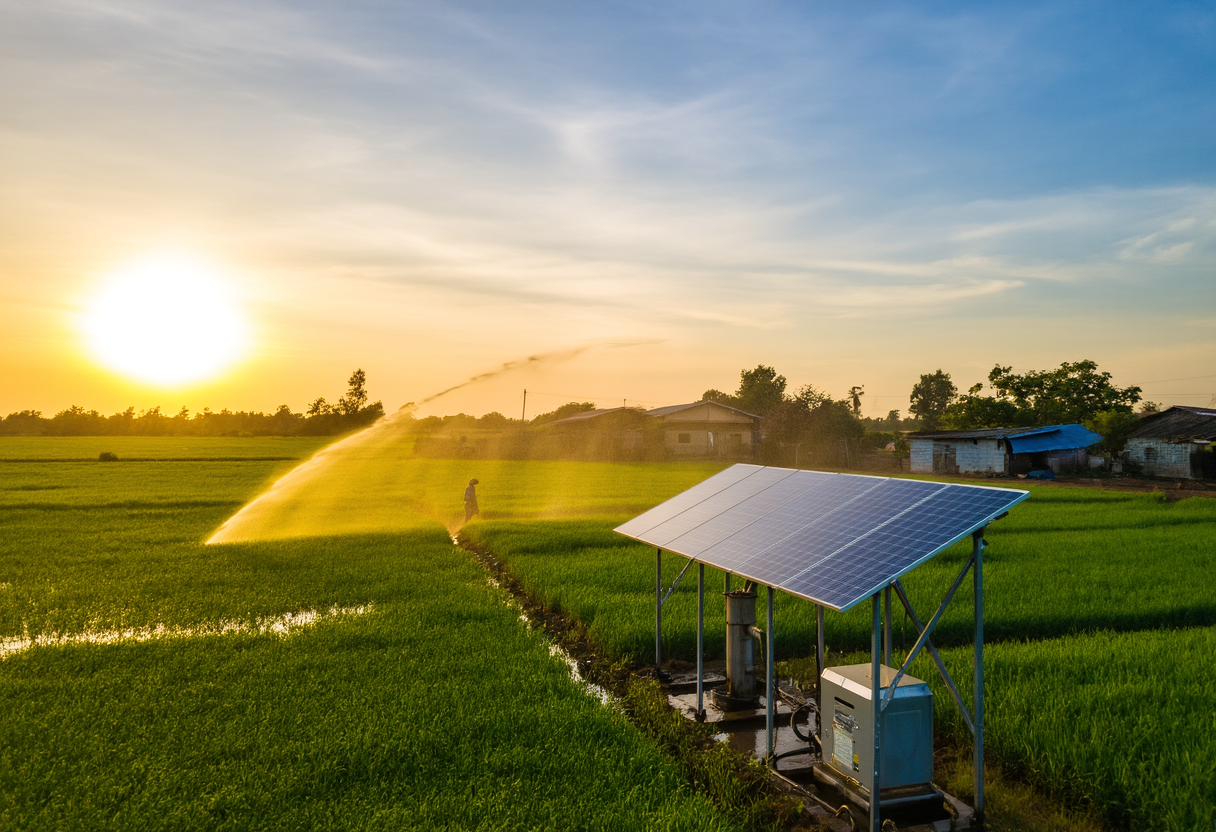Unlocking the Benefits of Solar-Powered Water Pumps for Efficient Irrigation
Solar-powered water pumps provide innovative solutions for efficient irrigation, offering both economic and environmental advantages. By relying on renewable energy, these pumps minimize operational costs while maximizing water conservation. This article delves into the advantages of solar-powered water pumps, their applications in agriculture, and even their impact on rural communities. With accessible technology, farmers can sustainably manage their resources while improving productivity and enhancing food security in an evolving agricultural landscape.
Understanding Solar-Powered Water Pumps
Solar-powered water pumps represent an innovative shift in how we approach irrigation. These systems utilize photovoltaic panels to convert sunlight into electricity, which powers the water pumps, enabling farmers to efficiently move water for irrigation purposes. This revolutionary approach reduces reliance on traditional fuel sources, which can be costly and environmentally damaging. As awareness of the benefits of solar technology grows, many farmers are beginning to recognize the potential of solar-powered water pumps as both an economic boon and a sustainable solution for managing water resources. Moreover, the seamless integration of this technology into existing agricultural practices is redefining the landscape of modern farming.
The Economic Advantages
The economic benefits of solar-powered water pumps are significant. These systems dramatically lower operational costs since sunlight is free and plentiful. Farmers can experience substantial savings on fuel and electricity bills, allowing them to allocate funds towards other areas of their operations. Additionally, with rising fuel prices and inconsistent electricity availability in some regions, solar-powered water pumps offer a reliable alternative. By improving irrigation efficiency with solar technology, farmers can maximize yield while minimizing costs, ultimately leading to improved profit margins. Over time, the return on investment for solar-powered water pumps becomes increasingly attractive, making them a smart choice for forward-thinking agricultural operators.
Environmental Considerations
Solar-powered water pumps play a pivotal role in promoting environmentally responsible farming practices. By reducing greenhouse gas emissions associated with traditional irrigation methods, these systems align with global sustainability goals. In regions experiencing significant water scarcity, solar-powered pumps help farmers manage their water use more effectively and reduce waste. Moreover, as climate change continues to impact weather patterns, these pumps empower farmers to overcome irrigation challenges, ensuring that crops receive the necessary water to thrive. The adoption of solar technology in agriculture not only benefits individual farmers but also contributes to broader environmental goals by fostering sustainable land use.
Enhancing Rural Communities
The benefits of solar-powered water pumps extend beyond individual farms and have a profound impact on rural communities. By providing continuous access to water, these systems empower local farmers to improve their livelihoods through reliable irrigation. Enhanced agricultural production contributes to food security and stability within communities, reducing reliance on food imports. Furthermore, as farmers generate higher yields through innovative irrigation methods, there are opportunities for local economies to flourish. Education programs and training initiatives centered on solar technology can further uplift these communities, fostering resilience and adaptability in the face of changing climatic conditions.
Challenges and Solutions in Adoption
Despite their many advantages, solar-powered water pumps come with challenges that must be considered. The initial investment for installation may be a barrier for some farmers, particularly in low-income regions. However, financial assistance programs and cooperative purchasing models can mitigate these challenges, enabling farmers to access this technology. Training is also essential to ensuring that users can maximize the potential of solar-powered systems effectively. Through ongoing education and support, farmers can overcome hurdles and integrate solar pumps into their daily operations seamlessly, ensuring long-term success. Policymakers and agricultural organizations must collaborate to provide the necessary resources and support for leveraging this technology.
The Future of Irrigation Technology
As the agricultural sector continues to evolve, the integration of solar-powered water pumps signifies a promising future for irrigation technology. These systems not only represent a shift towards renewable energy but also highlight the importance of sustainability in farming practices. With ongoing innovations in solar technology, the potential to further enhance the efficiency and effectiveness of irrigation systems becomes evident. The transition to solar-powered water pumps encourages a more sustainable agricultural framework, where productivity and environmental stewardship go hand in hand, ultimately securing a stable future for farmers and communities alike.
